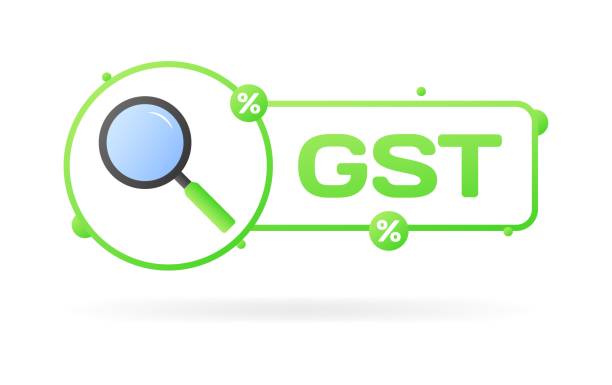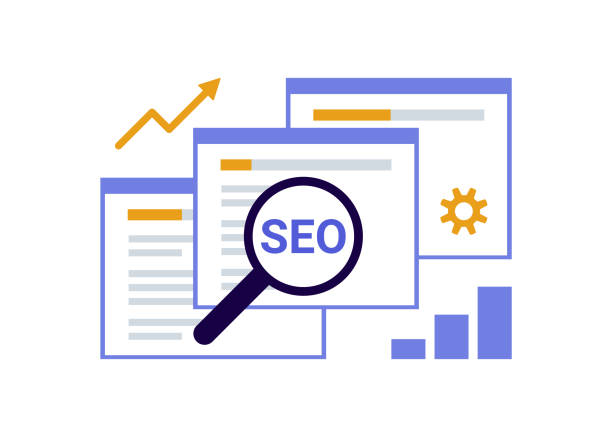What is SEO and why is it important?

What is SEO and why is it important?
#SEO or #Search #Engine #Optimization is a process that aims to improve a website’s ranking in search engine results such as Google, Bing, and Yahoo.
The main goal of SEO is to increase organic (non-paid) traffic to the website.
When a user searches for a term in a search engine, the search engine tries to show the user the most relevant and high-quality results.
Websites that have better SEO are more likely to appear on the first pages of search results.
The importance of SEO in today’s world is very high.
Most internet users use search engines to find the information, products, and services they need.
If your website is not on the first pages of search results, you will lose the chance to be seen by potential customers.
SEO not only increases website traffic but also helps to increase brand awareness and credibility.
A website that ranks high in search results is considered a credible and reliable source.
SEO includes various techniques that can be divided into two main categories: On-Page SEO and Off-Page SEO.
On-Page SEO focuses on optimizing elements such as content, website structure, and keywords.
Off-Page SEO includes activities such as link building and social media, which help increase the website’s credibility in the eyes of search engines. By using SEO techniques, you can easily increase your site’s ranking in Google and find new customers. Don’t forget that SEO is a time-consuming process and requires patience and persistence.
Did you know that customers’ first impression of your company is your website? Multiply the credibility of your business with a powerful company website from Rasaweb!
✅ Custom and eye-catching design tailored to your brand
✅ Improved user experience and increased customer engagement
⚡ Get a free consultation!
Keyword Research, the Beating Heart of SEO

Keyword Research, the Beating Heart of SEO
Keyword research is one of the most important steps in the SEO process.
Keywords are the terms that users type into search engines to find the information they are looking for.
By identifying and using appropriate keywords, you can optimize your website to attract targeted traffic.
In other words, keyword research helps you understand what users are looking for and how you can optimize your content to meet their needs.
To perform keyword research, you can use various tools such as Ahrefs Keywords Explorer, Ubersuggest, Keywordtool.io, and Google Keyword Planner.
These tools help you find keywords related to your website’s topic, check their search volume, and assess the level of competition for them.
It’s important to choose keywords that are both relevant to your business and have a decent search volume.
When choosing keywords, also pay attention to user intent.
User intent means what goal the user has when searching for a particular term.
Are they looking to buy a product? Are they looking to gain information? Are they looking to solve a problem? By understanding user intent, you can create content that best meets their needs and, as a result, rank higher in search results.
Also, pay attention to the variety of keywords.
Use long-tail keywords as well.
Long-tail keywords usually have lower search volumes, but the competition for them is also lower, and they can drive very targeted traffic to your website.
Finally, keyword research should be an ongoing process.
On-Page SEO, Optimizing Website Content and Structure

On-Page SEO, Optimizing Website Content and Structure
On-Page SEO refers to the set of actions that are performed within the website to improve the website’s ranking in search results.
These actions include optimizing content, website structure, title tags, meta descriptions, URLs, and other key website elements.
On-Page SEO helps search engines better understand your website’s content and recognize its relationship to user search queries.
Content optimization is one of the most important aspects of On-Page SEO.
Your content should be high-quality, relevant, and unique.
Use your target keywords in titles, subheadings, main text, and images.
But be careful not to overuse keywords, as this can harm your website’s SEO.
In addition, your content should be engaging and readable for users.
Use short paragraphs, images, and videos to make your content more attractive.
Your website’s structure also plays an important role in SEO.
Your website should be easy to navigate, and users should be able to find the information they need quickly.
Use a logical linking structure and make sure that all pages of your website are linked to each other.
Also, your website’s loading speed is important.
A website that loads slowly can reduce your website’s ranking in search results.
Finally, pay attention to title tags and meta descriptions.
Title tags and meta descriptions display a summary of your website page’s content in search results.
Make sure your title tags and meta descriptions are engaging and relevant and encourage users to click on your website link.
| On-Page SEO Element | Description | Importance |
|---|---|---|
| Page Title | The title should include the main keyword and be engaging and relevant. | High |
| Meta Description | The meta description should be a summary of the page’s content and encourage users to click. | Medium |
| Content | The content should be high-quality, relevant, and unique, and include target keywords. | High |
| URL Structure | The URL should be short, descriptive, and include the main keyword. | Medium |
| Internal Linking | Website pages should be linked to each other so that the site structure is logical. | Medium |
Off-Page SEO, Link Building, and Domain Authority

Off-Page SEO, Link Building, and Domain Authority
Off-Page SEO refers to the set of activities that are performed outside of your website and help improve your website’s ranking in search results.
The most important aspect of Off-Page SEO is Link Building.
Link building refers to the process of obtaining links from other websites to your website.
Search engines consider links as endorsements from other websites to your website.
The more high-quality links your website has, the greater your domain authority becomes, and your website’s ranking in search results improves.
To perform link building, you can use various methods.
One effective method is to create high-quality and valuable content that other websites will link to.
You can also contact websites related to your field of work and ask them to link to your website.
Participating in social media and being active in online forums can also help increase your website’s visibility and gain links.
In addition to link building, other factors also affect Off-Page SEO.
For example, activity on social media can help increase your brand awareness and increase your website’s traffic.
Also, listing your website in online directories and obtaining positive reviews from customers can help improve your website’s credibility.
Finally, remember that Off-Page SEO is a time-consuming process and requires patience and persistence.
By performing continuous activities, you can increase your domain authority and improve your website’s ranking in search results.
SEO is a dynamic and continuous process.
Does your current company website present a worthy image of your brand and attract new customers?
If not, turn this challenge into an opportunity with Rasaweb’s professional company website design services.
✅ Significantly improves your brand credibility and image.
✅ Paves the way for attracting leads and new customers.
⚡ Contact Rasaweb now to receive free and expert advice!
User Experience (UX) and its Impact on SEO

User Experience (UX) and its Impact on SEO
User Experience (UX) refers to the feeling and perception that users have when using a website or application.
A good user experience makes it easy for users to access the information they need, enjoy your website, and return to it.
Search engines also pay a lot of attention to user experience.
Google and other search engines use complex algorithms to evaluate the user experience of websites, and websites with better user experiences rank higher in search results.
Improving the user experience causes users to spend more time on the site and reduce the bounce rate.
Various factors affect user experience.
For example, website loading speed is one of the most important factors.
Users expect websites to load quickly, and if your website is slow, there is a good chance that users will leave it.
Also, your website design should be attractive and user-friendly.
Use readable fonts, appropriate colors, and high-quality images to make your website appealing to users.
Website navigation should be easy and intuitive.
In addition, your website content should also be high-quality and relevant.
Users should be able to find the information they need quickly, and if your content is confusing or irrelevant, there is a good chance that users will leave your website.
Finally, pay attention to the accessibility of your website.
Your website should be accessible to all users, including people with disabilities.
By following the principles of web accessibility, you can improve the user experience for all users and increase your website’s ranking in search results.
Also, responsive website design is an important aspect of user experience.
Technical SEO, Optimized Infrastructure for Search Engines

Technical SEO, Optimized Infrastructure for Search Engines
Technical SEO refers to optimizing the technical aspects of a website so that search engines can easily crawl and index it.
Technical SEO provides the necessary infrastructure for the success of other aspects of SEO such as On-Page SEO and Off-Page SEO.
If your website has technical issues, even with high-quality content and many links, it may not rank high in search results.
Some of the most important aspects of technical SEO include: website speed, responsiveness, the presence of an XML sitemap, the use of HTTPS protocol, fixing crawling and indexing errors, and the use of structured data.
Website speed has a significant impact on user experience and website ranking in search results.
A website that loads quickly keeps users satisfied and reduces the bounce rate.
Responsiveness means that your website should display well on various devices such as mobile phones, tablets, and desktop computers.
The XML sitemap helps search engines find and index all pages of your website.
Using the HTTPS protocol increases the security of your website and assures users that their information is safe.
Fixing crawling and indexing errors helps search engines to index your website correctly and prevents your website from being penalized.
Using structured data helps search engines better understand your website’s content and provide users with richer search results.
Technical SEO greatly contributes to the overall improvement of the site.
Measuring and Analyzing SEO Results

Measuring and Analyzing SEO Results
Measuring and analyzing SEO results is one of the most important steps in the process of optimizing a website for search engines.
Without measurement and analysis, you cannot know whether your SEO efforts are effective or not and what changes need to be made.
Using various tools, you can collect and analyze data related to website traffic, keyword ranking, user behavior, and other important aspects of SEO.
One of the most important tools for measuring SEO results is Google Analytics.
Google Analytics allows you to obtain accurate information about your website traffic, including the number of visitors, traffic sources, popular pages, the duration of users’ presence on the website, and the bounce rate.
By analyzing this information, you can understand which marketing channels are more effective for you, which pages of your website need improvement, and how you can improve the user experience.
Another tool that is very useful for measuring SEO results is Google Search Console.
Google Search Console allows you to check your website’s performance in Google search results.
Using this tool, you can find out what keywords your website is ranking for, what errors exist on your website, and how you can optimize your website for search engines.
In addition to these two main tools, there are other tools for measuring SEO results.
For example, tools like Ahrefs and Moz allow you to check keyword ranking, inbound links, and other important aspects of SEO.
| Metric | Description | Measurement Tool |
|---|---|---|
| Organic Traffic | The number of visitors who enter your website through search results. | Google Analytics |
| Keyword Ranking | Your website’s ranking for target keywords in search results. | Google Search Console, Ahrefs, Moz |
| Bounce Rate | The percentage of visitors who leave your website after viewing one page. | Google Analytics |
| Time on Site | The amount of time that visitors spend on your website. | Google Analytics |
| Inbound Links | The number and quality of links that point to your website from other websites. | Ahrefs, Moz |
Common Mistakes in SEO and How to Avoid Them

Common Mistakes in SEO and How to Avoid Them
In the SEO process, mistakes can occur that can harm your website’s ranking.
Knowing these mistakes and avoiding them is essential for success in SEO.
One of the most common mistakes in SEO is Keyword Stuffing.
Overusing keywords in content can harm your website’s ranking because search engines identify this as a spam technique.
Instead of overusing keywords, try to produce high-quality and relevant content that naturally includes your target keywords.
Another common mistake in SEO is ignoring user experience.
A website that has a bad user experience cannot rank high in search results.
Low loading speed, inappropriate design, and irrelevant content can cause users to leave your website and visit another website.
To avoid this mistake, try to create a website with a high speed, attractive design, and high-quality and relevant content.
Another mistake that occurs in SEO is ignoring technical SEO.
A website that has technical problems cannot be ranked well in search results.
To avoid this mistake, try to technically optimize your website and make sure that search engines can easily crawl and index it.
Finally, remember that SEO is an ongoing process and requires patience and persistence.
By avoiding common mistakes and performing SEO activities continuously, you can improve your website’s ranking in search results and attract more traffic to your website.
Remember that SEO is a dynamic and ever-changing process.
Are you tired of your online store having visitors but no sales? Rasaweb solves your main problem with professional online store designs!
✅ Significant increase in sales with targeted design
✅ Flawless user experience for your customers
⚡ Get a free consultation!
The Future of SEO, Changes and Predictions

The Future of SEO, Changes and Predictions
The world of SEO is constantly changing and evolving.
Google and other search engines are constantly updating their algorithms, and these changes can have a significant impact on the ranking of websites in search results.
To succeed in SEO, you must always be aware of the latest changes and predictions and adjust your SEO strategy accordingly.
One of the most important changes that has occurred in SEO in recent years is the increased importance of user experience.
Google is increasingly rewarding websites that offer a good user experience.
Therefore, if you want to succeed in SEO, you should focus heavily on improving the user experience of your website.
Another important change in SEO is the increased importance of voice search.
With the increasing use of smart devices and voice assistants, voice search has become a popular way to search for information.
To optimize your website for voice search, you should use long-tail keywords and conversational phrases and answer users’ questions completely and accurately.
It is predicted that in the future, Artificial Intelligence (AI) will play a more important role in SEO.
AI can help search engines better understand the content of websites and provide users with more relevant search results.
Also, AI can help you improve your SEO strategy and stay ahead of your competitors.
Finally, remember that SEO is an ongoing process and requires patience and persistence.
By tracking the latest changes and predictions, you can keep your SEO strategy up to date and improve your website’s ranking in search results.
SEO Strategy, Developing and Implementing a Comprehensive Plan

SEO Strategy, Developing and Implementing a Comprehensive Plan
An SEO strategy is a roadmap that helps you improve your website’s ranking in search results and attract more traffic to your website.
Developing and implementing a comprehensive SEO strategy is essential for success in SEO.
An SEO strategy should include specific goals, target keywords, On-Page and Off-Page SEO tactics, and a plan for measuring and analyzing results.
The first step in developing an SEO strategy is to set goals.
Your goals should be Specific, Measurable, Achievable, Relevant, and Time-bound (SMART).
For example, your goal could be to increase your website’s organic traffic by 50 percent in the next 6 months.
The next step is to identify target keywords.
Target keywords are the terms that users type into search engines to find the information they are looking for.
To identify target keywords, you can use keyword research tools such as Google Keyword Planner and Ahrefs.
After identifying target keywords, you need to determine your On-Page and Off-Page SEO tactics.
On-Page SEO tactics include optimizing content, website structure, and title and meta description tags.
Off-Page SEO tactics include link building, social media, and online advertising.
Finally, you should have a plan for measuring and analyzing your SEO results.
Using tools like Google Analytics and Google Search Console, you can measure and analyze website traffic, keyword ranking, and other important aspects of SEO.
By analyzing this data, you can understand which SEO tactics are more effective for you and what changes need to be made.
Remember that SEO is an ongoing process and requires patience and persistence.
By developing and implementing a comprehensive SEO strategy and performing SEO activities continuously, you can improve your website’s ranking in search results and attract more traffic to your website.
SEO is both a science and an art.
Frequently Asked Questions
| Question | Answer |
|---|---|
| What is SEO? | SEO, or Search Engine Optimization, is a process to increase the quality and quantity of website traffic by improving the site’s ranking in natural (organic) search engine results, such as Google. |
| What are the main types of SEO? | SEO is divided into three main categories: On-Page SEO, Off-Page SEO, and Technical SEO. |
| What does On-Page SEO include? | On-Page SEO includes optimizing elements within the website, such as keywords, title tag, meta description, content, URL structure, images, and internal links. |
| What is Off-Page SEO? | Off-Page SEO refers to activities outside the website that help improve its ranking, such as backlink building, social media marketing, and brand mentions. |
| What is Technical SEO? | Technical SEO focuses on optimizing the technical aspects of the website to help search engines crawl and index it better. This includes site speed, mobile-friendliness, site structure, sitemaps, and Robots.txt file. |
| What role do keywords play in SEO? | Keywords are the terms that users enter in search engines. Correct and targeted use of relevant keywords in the content and site elements helps search engines understand the topic of your page and display it to related searches. |
| What is a Backlink and why is it important? | A backlink, or inbound link, is a link from one website to another. Backlinks act as a “vote of confidence” from other sites for search engines and play an important role in the credibility and ranking increase of the site, especially if they are from reputable sites. |
| What impact does quality content have on SEO? | High-quality, relevant, comprehensive, and unique content not only attracts and retains users, but also shows search engines that your page is valuable. This helps to improve ranking, reduce bounce rate, and increase the time users spend on the site. |
| Why is site loading speed important for SEO? | Site loading speed is an important ranking factor for Google. Faster sites provide a better user experience, have lower bounce rates, and are preferred by search engines. |
| Is SEO a one-time process? | No, SEO is an ongoing and long-term process. Search engine algorithms are constantly changing, competition is increasing, and site content also needs to be updated. Therefore, SEO requires continuous monitoring, analysis, and optimization. |
And other services of Rasa Web advertising agency in the field of advertising
Intelligent direct marketing: designed for businesses that are looking to build a digital brand through a search engine optimized content strategy.
Intelligent SEO: an effective tool for user engagement with custom programming.
Intelligent marketplace: a dedicated service for online growth based on a search engine optimized content strategy.
Intelligent Google Ads: an effective tool to increase site visits with custom programming.
Intelligent custom software: an effective tool to attract customers with a search engine optimized content strategy.
And hundreds of other services in the field of internet advertising, advertising consulting and organizational solutions
Internet Advertising | Advertising Strategy | Advertorial
Resources
What is SEO?
,SEO Basics
,SEO: The Complete Guide
,What is SEO and Why is it Important?
Ready to catapult your business into the digital world? Rasaweb Afrin, a leading digital marketing agency, with expertise in SEO, Google Ads, and fast website design, paves the way for your online success.
📍 Tehran, Mirdamad Street, next to the Central Bank, South Kazerun Alley, Ramin Alley No. 6




